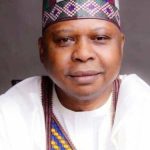In the complex political pyramid of Nigeria heading toward 2027, one reality stands firm — the Presidential Candidate remains the jewel of the crown. It is the single factor capable of redefining alliances, reviving hope, and restoring the fading balance between North and South. At the heart of this dynamic stands Dr. Goodluck Ebele Jonathan, whose quiet strength and enduring credibility have once again become the greatest fear of the ruling class.
South: Reclaiming the Emotional Geography
In a straight Jonathan versus Tinubu contest, the three southern geopolitical zones present a clear electoral advantage for Jonathan.
The South-South remains his unshakable bastion — emotionally, politically, and historically tied to his leadership era that promoted inclusion and dignity.
The South-East views him as a trusted ally who gave the region recognition, ministerial balance, and infrastructural fairness, unlike the symbolic neglect of recent years.
In the South-West, while Tinubu may command traditional roots, the socio-economic backlash of his government, coupled with rising disillusionment among intellectuals, professionals, and youth, could grant Jonathan a minimum of 25% or more — a figure strong enough to upset the ruling APC’s southern monopoly.
This pattern suggests that the South, long divided by ambition and propaganda, may rediscover unity under a familiar and humbler face — one that offers not power for its own sake, but peace and recovery.
North: A Renewed Covenant of Trust
In the North, a new political psychology is unfolding. The fear and resentment once engineered against Jonathan have faded under the weight of insecurity, poverty, and unkept promises. From Sokoto to Borno, from Kano to Bauchi, there is a quiet nostalgia for the Jonathan years — years when Nigeria, though imperfect, still held moral direction and collective dignity.
Both Muslims and Christians in the North increasingly view Jonathan as a moderate unifier, not an adversary. His humility and post-office composure have earned him trust across divides. Many Northern leaders now admit privately that the nation’s moral compass tilted downward after his exit. Hence, if Jonathan stands on the ballot in 2027, the North is likely to vote for peace over pride, and stability over sentiment.
APC’s Fear and Judicial Preemption
The APC’s judicial panic to bar Jonathan from contesting the 2027 Presidential Election — even before his declaration — is a political confession. It reveals a deep-seated fear that Jonathan’s return could dismantle the fragile regional alliances that brought Tinubu to power. It also exposes APC’s awareness that, in an open field of fairness, Tinubu cannot survive a Jonathan challenge.
Their preemptive legal maneuver is therefore not about constitutionality but insecurity of legitimacy. For a ruling party that promised renewed hope, the desperation to silence an opponent before the race begins shows that its so-called strength lies in manipulation, not confidence.
The Crown Jewel of Balance
Dr. Goodluck Jonathan today represents more than a politician — he embodies a national conscience. His potential return to the ballot symbolizes a moral and generational correction to Nigeria’s present imbalance. Between religion and ethnicity, between arrogance and humility, between noise and reason — Jonathan stands as the bridge of moderation.
Should he choose to run, 2027 may not just be an election year — it could be the rebirth of Nigeria’s democratic equilibrium, where power returns to merit, and leadership regains humanity. In the Political Pyramid 2027, therefore, Jonathan is the crown jewel capable of turning the tide, reviving trust, and restoring faith in the idea of one Nigeria.
Dahiru Yusuf Yabo
Political & Security Analyst
RED-LINE 2027






